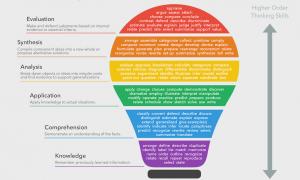 It happens all the time—an employer makes a hiring decision that I don’t understand. I’m the one who set up the interviews, but the hiring manager can’t tell me the exact reasons why one candidate was hired and another turned down. They just can’t describe what it was that was so impressive. When pushed, their reasoning sounds really wishy-washy.
It happens all the time—an employer makes a hiring decision that I don’t understand. I’m the one who set up the interviews, but the hiring manager can’t tell me the exact reasons why one candidate was hired and another turned down. They just can’t describe what it was that was so impressive. When pushed, their reasoning sounds really wishy-washy.
That missing piece is sometimes described as the “it” factor. A client will say, “Although Joe is a better fit technically for the role, I think that we need to hire Angela. She has it—you know, what we’re looking for.” This isn’t helpful. It just sounds like a vague, catch-all phrase, and I’m as much in the dark as I was before.
But, after 30 years as a recruiter, I’ve come to recognize some of the elements of the “it” factor—and how you can capitalize on them to optimize it for yourself.


 When searching for work, it is important to remember that employers are evaluating you on all aspects of the job search process. From the application to the interview, you always need to put your best foot forward. New research, however, shows that all too often, job candidates make myriad blunders that damage their chances of finding work.
When searching for work, it is important to remember that employers are evaluating you on all aspects of the job search process. From the application to the interview, you always need to put your best foot forward. New research, however, shows that all too often, job candidates make myriad blunders that damage their chances of finding work.




